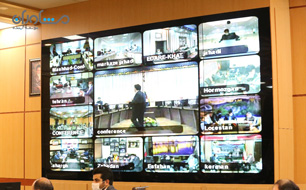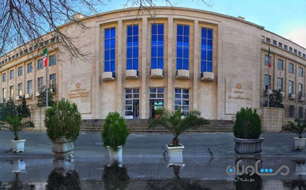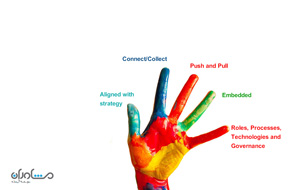
Banking
In today's world, knowledge is one of the most important and significant factors in achieving success in competitive markets. Therefore, modern business organizations consider knowledge as their strategically valuable asset. Knowledge, like any other asset, requires wise management based on effective and efficient procedures and practices. This can also be extended to financial institutions, especially those in the banking industry. These institutions rely mainly on the interpretation and organization of data to create the knowledge necessary to manage their activities.
The findings show that KM's application in banks started in 1996 in the World Bank, after that in developed countries, and then in different parts of developing countries. Knowledge management software and solutions in the banking sector is defined as how a banking institution identifies, discovers, and collects the knowledge it needs and uses it to support and improve its overall performance.
The findings show that KM's application in banks started in 1996 in the World Bank, after that in developed countries, and then in different parts of developing countries. Knowledge management software and solutions in the banking sector is defined as how a banking institution identifies, discovers, and collects the knowledge it needs and uses it to support and improve its overall performance.
Creating a competitive advantage in the banking system
In general, creating a competitive advantage is one of the best methods that any organization should use to maintain its stability in a highly competitive market environment. Creating a competitive advantage means providing what others cannot offer.
Creating a competitive advantage in the world of banking faces obstacles and challenges, some of which are mentioned below:
• Lack of development of employees' abilities and skills and negligence despite its unique importance in today's competitive markets;
• Complexities related to administrative development and lack of appropriate measures to empower employees;
• Lack of universally accepted theories and models;
• Weaknesses in maintaining information security in knowledge management systems;
• lack of platforms to learn from past mistakes among bank employees and managers;
• Tendency to traditional approaches in most banks;
Creating a competitive advantage in the world of banking faces obstacles and challenges, some of which are mentioned below:
• Lack of development of employees' abilities and skills and negligence despite its unique importance in today's competitive markets;
• Complexities related to administrative development and lack of appropriate measures to empower employees;
• Lack of universally accepted theories and models;
• Weaknesses in maintaining information security in knowledge management systems;
• lack of platforms to learn from past mistakes among bank employees and managers;
• Tendency to traditional approaches in most banks;

Implementing knowledge management in banks and financial institutions
The trend towards knowledge management in the banking sector is primarily based on transferring large amounts of information from different sources. Knowledge management is the central pillar of strategic management in the modern banking sector. Knowledge management platforms, in practice, facilitate the transfer of data and information across the enterprise.
Besides, knowledge management software simplifies the process of collecting, classifying, reviewing, and presenting information in a way that is easy to use, understand, and share, even for the average person. Organizing information in these steps makes the decision-making process based on that information very efficient.
Besides, knowledge management software simplifies the process of collecting, classifying, reviewing, and presenting information in a way that is easy to use, understand, and share, even for the average person. Organizing information in these steps makes the decision-making process based on that information very efficient.

MTAShare and Banking industry
MTA implemented its software in many Iranian banks like Refah Bank, Mellat Bank, Parsian Bank, and Shahr bank. Some consequences of implementing MTAShare in those organizations are:
• Enhancing performance in banking processes
• High ability of employees to demonstrate their capabilities all through the bank
• Noticeable impacts in time-consuming procedures
• better recognition of best branches in knowledge sharing indices
• Reduction in learning costs for novice employees
• Connecting to digital platforms for decision making
• Improvement in collaboration indices all through units
• High ability of employees to demonstrate their capabilities all through the bank
• Noticeable impacts in time-consuming procedures
• better recognition of best branches in knowledge sharing indices
• Reduction in learning costs for novice employees
• Connecting to digital platforms for decision making
• Improvement in collaboration indices all through units

Investigating the implementation of knowledge management in Jeddah banks in Saudi Arabia
According to a 2019 study of several banks in Jeddah, the challenges of implementing knowledge management in the banking sector in Jeddah (Saudi Arabia) are positively related to achieving and improving competitive advantage. The results also show that the quality of services in banking and innovation is achieved by using a knowledge management platform to create a competitive advantage. Acceptance of the concept of knowledge management has a positive effect on customer satisfaction, while its implementation is directly related to quality in implementation. Also, these results show that competitive advantage depends on better implementation of knowledge management.








